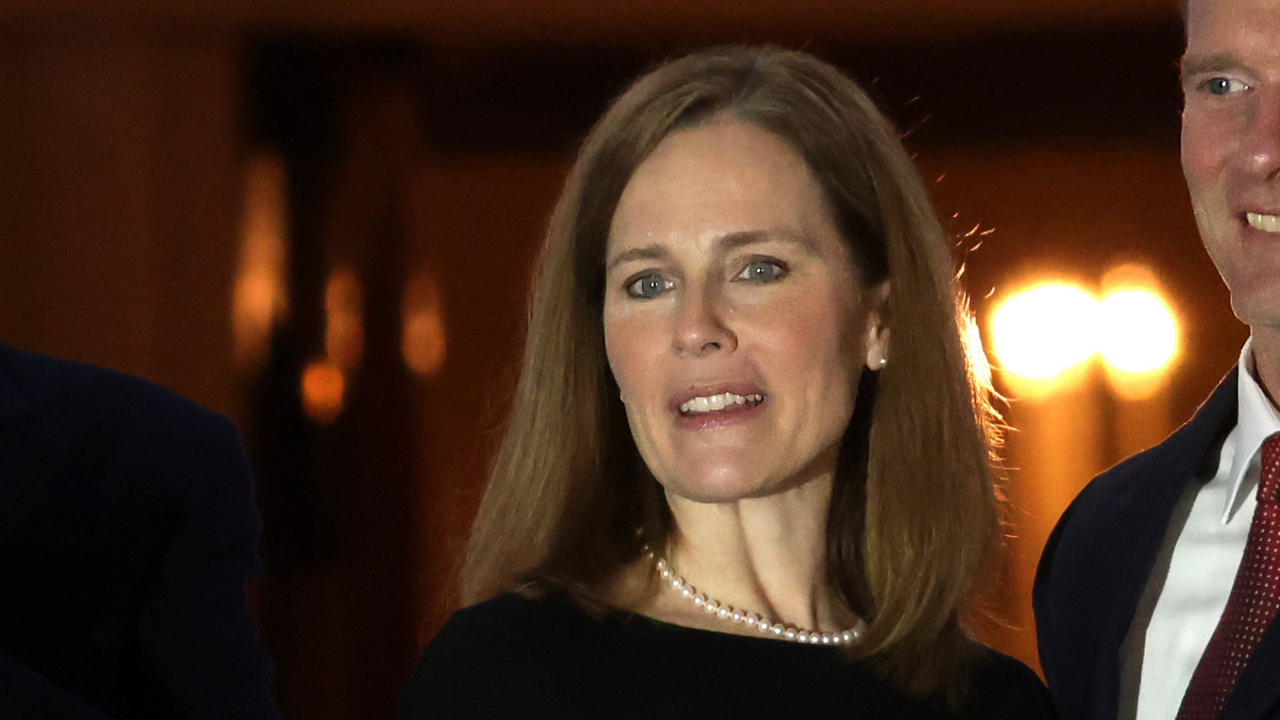President Donald Trump demanded that “all Foreign Companies” in the US “hire and train American Workers” after nearly 500 employees were swept up in a massive immigration raid at a Hyundai–LG battery plant in Georgia.
The Immigration and Customs Enforcement operation on Sept. 4 — described by Homeland Security as the largest single-site enforcement action in its history — ended with more than 300 South Koreans detained — including engineers and instructors — as well as nearly 200 Latino workers.
Images of the shackled workers being led onto buses, broadcast widely in Seoul, ignited political uproar and investor unease in South Korea.
“Following the Immigration Enforcement Operation on the Hyundai Battery Plant in Georgia, I am hereby calling on all Foreign Companies investing in the United States to please respect our Nation’s Immigration Laws,” Trump wrote on Truth Social early Monday.
“Your Investments are welcome, and we encourage you to LEGALLY bring your very smart people, with great technical talent, to build World Class products, and we will make it quickly and legally possible for you to do so. What we ask in return is that you hire and train American Workers.”
Trump later told reporters: “I would say that they were illegal aliens and ICE was just doing its job.”
The investigation took place over several months, Steven Schrank, special agent in charge of investigations for Georgia, said during a press briefing.
“The United States is proud to be a home for major investments and looks forward to continuing to build on these historic investments and partnerships that President Trump has secured,” White House spokesperson Abigail Jackson told The Post in a statement.
“Any foreign workers brought in for specific projects must enter the United States legally and with proper work authorizations.”
Jackson added that President Donald Trump “will continue delivering on his promise to make the United States the best place in the world to do business, while also enforcing federal immigration laws.”
South Korea confirmed Sunday that the 300 nationals detained in the raid would be released and flown home on chartered flights after Seoul reached agreement with the Trump administration.
Kang Hoon-sik, chief of staff to President Lee Jae Myung, said “only administrative procedures remain” before the workers return.
South Korea’s Trade Minister Yeo Han-koo said Monday the government is “well aware of the concerns” raised by the raid and vowed to coordinate with the Foreign Ministry to “explore ways to improve the system.”
The fallout was immediate, according to Bloomberg News.
LG Energy has tentatively postponed the launch of EV battery production at the Georgia facility, according to the Korea Economic Daily. Hyundai has barred staff from traveling to the US.
Samsung Electronics has tightened restrictions on business trips under the ESTA program, telling employees to limit stays to two weeks, according to Bloomberg News.
The crackdown came less than two weeks after President Lee Jae Myung met President Donald Trump in Washington, where the two touted a trade pact including a $350 billion US fund to back Korean investment.
South Korean firms separately pledged $150 billion in direct US spending. Now, those commitments look shakier.
LG Energy had planned to start battery production this year, targeting 30 GWh annually, but the new timeline shifts operations to the first half of 2026.
The delay could ripple across Hyundai and its affiliate Kia Corp., which are counting on the Georgia plant to supply batteries for their expanding EV lineups.
An LG Energy spokesperson confirmed to Bloomberg News on Monday that production was already pushed to next year due to “market conditions,” insisting it was “too early” to say if the raid would further affect operations.
Hyundai and Kia representatives also told Bloomberg News it was premature to assess any business impact.
Still, analysts see warning signs.
“The case demonstrates how tough it has become for Korean companies to make money from the investments in the US,” Kang DaeKwun, chief investment officer at Life Asset Management, told Bloomberg News.
He cited inflation, workforce shortages and new immigration scrutiny as mounting challenges.
Investor reaction was muted in Seoul. LG Energy shares finished up 0.2% on Monday, while Hyundai slipped 0.7%, slightly underperforming the broader market. Analysts noted the battery delay had been widely anticipated.
But risks are mounting for Korean firms that rely on subcontractors and temporary labor while waiting months for US visas to clear.
SK Group Chairman Chey Tae-won, who also heads the Korea Chamber of Commerce, urged the government to negotiate expanded US visa quotas to prevent similar incidents.
President Lee, speaking in Seoul after the raid, acknowledged the political stakes without naming detainees.
“We are at a very difficult situation,” he said, stressing the need to strengthen “national power” in ties with the US and Japan.
Foreign Minister Cho Hyun departed for Washington Monday to press for the release of the 300 Koreans now held in US custody. A Seoul government official said arrangements were being made for a voluntary departure flight.
Cho told reporters he was “not ruling out” returning with the detainees Wednesday, depending on talks with US officials.
The Georgia facility is central to US efforts to lock down domestic EV supply chains, a pillar of Trump’s industrial policy. The raid and resulting delay throw fresh uncertainty into automakers’ production schedules.
Yuanta Securities analyst Anna Lee warned in a report that mass-producing batteries in 2026 is now impossible. She expects a one-year delay due to “diplomatic solutions required in the absence of other visa options for workers.”
Even so, she told Bloomberg News that earnings impact would be limited since LG Energy had already flagged possible production setbacks.
Samsung, Hyundai, LG, Kia, and SK all have billions riding on US manufacturing expansion.
With visa quotas tight, wage costs rising and political scrutiny intensifying, executives fear the profitability of those bets could shrink.
The Post has sought comment from the the State Department, the Korean government, Samsung, Hyundai, LG, Kia and SK.














